Bake-off and finished goods can help businesses of all sizes tap growing consumer demand for on-the-go and healthier bakery
Consumers are a demanding bunch: they want exciting new baked goods, served fresh at all times of day in convenient formats. Oh, and they ideally want them to be healthy, too.
It is a lot to ask of any business, whether a major supermarket or an independent baker, but bake-off products can help – particularly when it comes to tapping the booming food-to-go market.
“With consumers seeking eye-catching new products, freshly baked goods with real shelf appeal are pivotal for driving sales,” says Jacqui Passmore, marketing manager, UK and Ireland for Dawn Foods.
She adds that bakers are under pressure to keep customers interested and loyal, and are looking for creative ways to protect margins. “Bake-off and finished frozen products provide a convenient and cost-effective solution to give bakers the option of offering a wide range of sweet bakery items without buying in different ingredients or ‘skilling up’,” suggests Passmore. “For bakeries with fewer staff but a booming food-to-go business, bake-off and frozen fully finished products are ideal options to meet consumer demand.”
One demand many businesses are looking to meet is health, with pressure growing to reduce the fat and sugar content of products while offering cleaner labels.
CSM produces a reduced-fat doughnut developed with school authorities to ensure it meets relevant guidelines. It has no added colours, flavours or preservatives and is sold with free mini doughnut bags to help communicate the benefits at point of sale.
Creating an entirely guilt-free pastry with the same taste and texture as a traditional recipe is challenging, says Paul Eason, development chef for Belgian pastry products business Pidy.
“But there are ways to add healthier elements to pastry products to meet the demand,” he adds. Pidy produces a wholemeal quiche that he says offers an interesting new take on a traditional quiche. “Wholegrain, whole wheat flour contains more vitamins, minerals and proteins than refined white flour, and it is also a good way to increase the fibre content.”
Smaller formats are also being offered, and more development in this area can be expected given the 2020 voluntary sugar reduction targets announced in March by government agency Public Health England. It cited portion size reduction as one way manufacturers could meet these targets.
Miniature formats can be “ideal for fickle or health-conscious consumers looking for small indulgences”, says Samantha Winsor, assistant brand manager at Lantmännen Unibake UK. “Our Schulstad Bakery Solutions Mini Viennoiserie Assortment includes mini croissants, mini pains au chocolat and mini pains aux raisins. The unique dough-resting process allows the dough to rise naturally, allowing for optimum flavour and texture, giving consumers the indulgent product they demand in the size they can eat quickly or take away with them,” she says.
Brioche Pasquier has recently turned some of its popular dessert recipes into petits fours. The new Petits Fours Envies Sucrées (which translates as sweet desires) feature nine varieties of “intricate French sweet heaven”, according to the company.
On the flipside of this, some health-conscious customers view food-to-go as a treat or indulgence, says Passmore: “Consumers seem happy to mix and match – saintly in the week and sinful at the weekend.”
Free-from products also tick the health box for many consumers, and Sainsbury’s this year claimed a first for a UK supermarket with the launch of baked-in-store gluten-free bread at 188 of its in-store bakeries. The breads arrive in store in a bake-proof film packaging, and are baked without opening the packaging to prevent cross-contamination.
Supermarkets may look to such speciality breads to boost category performance, with sales of in-store bakery traditional rolls in decline, according to Kantar Worldpanel data for the 52 weeks ending 26 February 2017 (see panel above).
“Supermarkets will be looking for a way to drive growth in in-store bakery,” says Kantar Worldpanel analyst Chloe Ashe, adding that discount retailers such as Aldi and Lidl are continuing to invest in their in-store bakery capabilities. “It will be interesting to see how this shakes up the market and affects the way the big four (Tesco, Sainsbury’s, Asda and Morrisons) view the category.”
One strategy they could adopt is targeting the breakfast market. According to Kantar, baked goods have seen a 10% rise in popularity among breakfast consumers, with Brits tucking into croissants, pastries and muffins for breakfast on 197.7 million occasions in the past year.
CSM Bakery Solutions offers the Readi-Bake range that includes thaw-and-serve doughnuts, cookies and muffins, which it says allow bakers to offer a “high-quality, consistent” product with minimal effort. The 95% baked muffins can either be thawed and served or baked in the oven for 10 minutes to get a freshly baked aroma – and thus attract extra sales.
“Bakers need not only be restricted to baking off a few pastries for breakfast,” says Passmore. “Morning goods can cover muffins, cookies, traybakes and even doughnuts, and these can be extended into many other parts of the day too.”
When it comes to bake-off and finished goods, the message from consumers would appear to be clear – throw out the rule book; everything that tastes wonderful after work can also be brilliant at breakfast. And if you offer a healthier option, so much the better.
Bake-off innovation
One of the latest innovations to hit the pastry market is the Croll (pictured below) – a hybrid product that’s “a light pastry, like a croissant, in the convenient form of a roll”, says supplier New York Bakery Company.
Croissants are the second most popular carrier at breakfast, according to MCA Eating Out Panel 2016. But New York Bakery Company says: “Due to their flakiness they are starting to lose out to carriers that are less messy to eat on the move, such as paninis.”
“Innovation in sandwich carriers is great for the category and with the ongoing popularity of hybrids and food-to-go, Croll is a perfect solution,” adds New York Bakery Company out-of-home marketing manager Philippa Norton.
Croll won bronze in the Casual Dining Innovation Challenge 2017 and took the winning spot in the Bread and Morning Goods category at the inaugural Chef’s Choice Awards this year, organised by British Baker publisher William Reed Business Media.
Similarly, Bridor this year unveiled a burger bun/croissant hybrid, the Bun ’n’ Roll, which it plans to bring to the UK this year. The Bun ’n’ Roll won the much-coveted Innovation award at the Sirha 2017 food event in Lyon, France.
The judges said: “This pastry bun will seduce your guests with its different aspect.”
Bun ’n’ Roll is anticipated to be available in packs of 50, and will launch into the UK market before the end of 2017.
Erwan Inizan, sales director UK, Ireland, Nordic and Baltic for Bridor, told British Baker before the launch: “We’re really excited about the Bun ’n’ Roll – we anticipate this being the next big thing and can’t wait to bring it to the UK.”
Keep it short and sweet
Research by Lantmännen Unibake UK has revealed key sales drivers for sweet pastries:
- High-quality, flaky and freshly baked pastry is something every product must deliver; consumers expect, and often enjoy, the flakiness of the product as this is a sign of a quality pastry.
- A good level of glaze is important to provide fresh cues to the consumer and ensures the product looks like it has been finished with care, inviting them to consume it.
- The bake colour must also be spot-on – not too dark or too light – to demonstrate that the pastry is expertly baked to perfection.
- Well-finished icing on Danish pastries is critical to success. It helps to demonstrate the care that has gone into the product and shows an element of hand-finishing. It also adds a sweet texture to the product.
The sweet smell of success
While bakers have long debated whether a product should be described as freshly baked if it wasn’t started in-store, few would deny the power of the smell of baked goods.
“Bakery aromas signal freshness,” says Professor Charles Spence from Oxford University, who has been working with Dawn Foods on its Sweet Bakeology Campaign, looking at the relationship between food purchases and the senses.
“Colleagues in the flavour and fragrance industry tell me that aromas like bread are among the hardest to create synthetically,” he adds. “As such, authentic bakery aromas may be so appealing, in part, because they cannot be faked.”
Perhaps this is why Dawn’s research shows consumers are more likely to purchase baked goods from a baker than a convenience store or garage forecourt. “Our research tells us it is the aroma as well as the quality, innovation and taste of the product that will excite consumers and tempt them to purchase,” states Jacqui Passmore marketing manager, UK and Ireland, for Dawn Foods.
As to whether a bake-off item should be described as freshly baked, Passmore says consumers understand that many sweet bakery items are not made in-house and a high-street baker may not have the time or resource to make so many products from scratch.
Food exports in a post-Brexit world



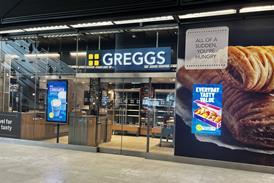

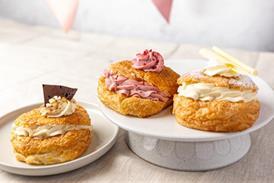
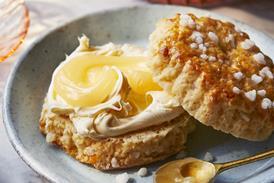

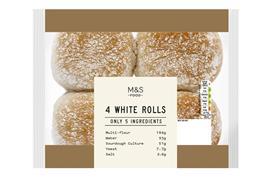
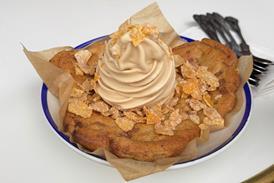


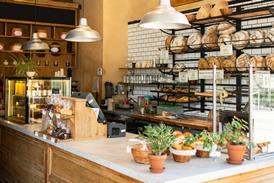



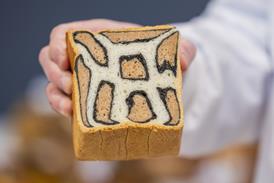

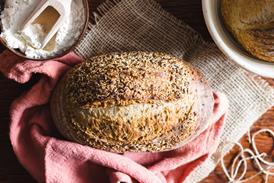



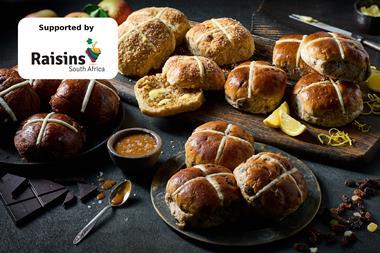

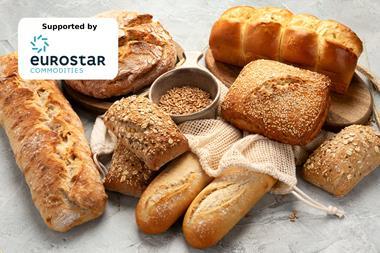





















No comments yet